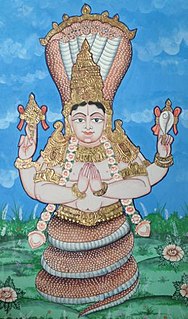A Quote by Erwin Schrodinger
The plurality that we perceive is only an appearance; it is not real. Vedantic philosophy... has sought to clarify it by a number of analogies, one of the most attractive being the many-faceted crystal which, while showing hundreds of little pictures of what is in reality a single existent object, does not really multiply that object.
Related Quotes
Memory is therefore, neither Perception nor Conception, but a state or affection of one of these, conditioned by lapse of time. As already observed, there is no such thing as memory of the present while present, for the present is object only of perception, and the future, of expectation, but the object of memory is the past. All memory, therefore, implies a time elapsed; consequently only those animals which perceive time remember, and the organ whereby they perceive time is also that whereby they remember.
Wonder — the enthusiastic ardor for the sublimity of being, for its worthiness to be an object of knowledge — promises to become the point of departure for genuine insight only where it has reached the stage in which the subject, overwhelmed by the object, has, as it were, fused into a single point or into nothing.
There is no one kind of thing that we 'perceive' but many different kinds, the number being reducible if at all by scientific investigation and not by philosophy: pens are in many ways though not in all ways unlike rainbows, which are in many ways though not in all ways unlike after-images, which in turn are in many ways but not in all ways unlike pictures on the cinema-screen--and so on.
The everyday world, as Kant proved, is mere appearance. But it is also the only world in which we can make sense of the idea of a plurality of distinct individuals. We can only distinguish things as different if they occupy different regions of space-time. It follows (a point Kant missed but which the mystics have always understood) that reality 'in itself' is 'beyond plurality' and is, in that sense, 'One'.
Whenever a single definite object is made the supreme end of the State, be it the advantage of a class, the safety of the power of the country, the greatest happiness of the greatest number, or the support of any speculative idea, the State becomes for the time inevitably absolute. Liberty alone demands for its realization the limitation of the public authority, for liberty is the only object which benefits all alike, and provokes no sincere opposition.
If thinking is like perceiving, it must be either a process in which the soul is acted upon by what is capable of being thought, or a process different from but analogous to that. The thinking part of the soul must therefore be, while impassable, capable of receiving the form of an object; that is, must be potentially identical in character with its object without being the object. Mind must be related to what is thinkable, as sense is to what is sensible.
A life is such a strange object, at one moment translucent, at another utterly opaque, an object I make with my own hands, an object imposed on me, an object for which the world provides the raw material and then steals it from me again, pulverized by events, scattered, broken, scored yet retaining its unity; how heavy it is and how inconsistent: this contradiction breeds many misunderstandings.



































